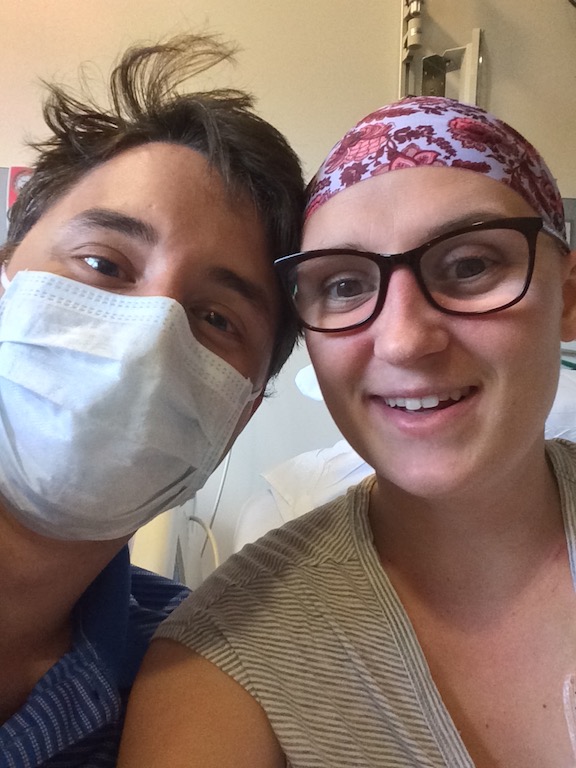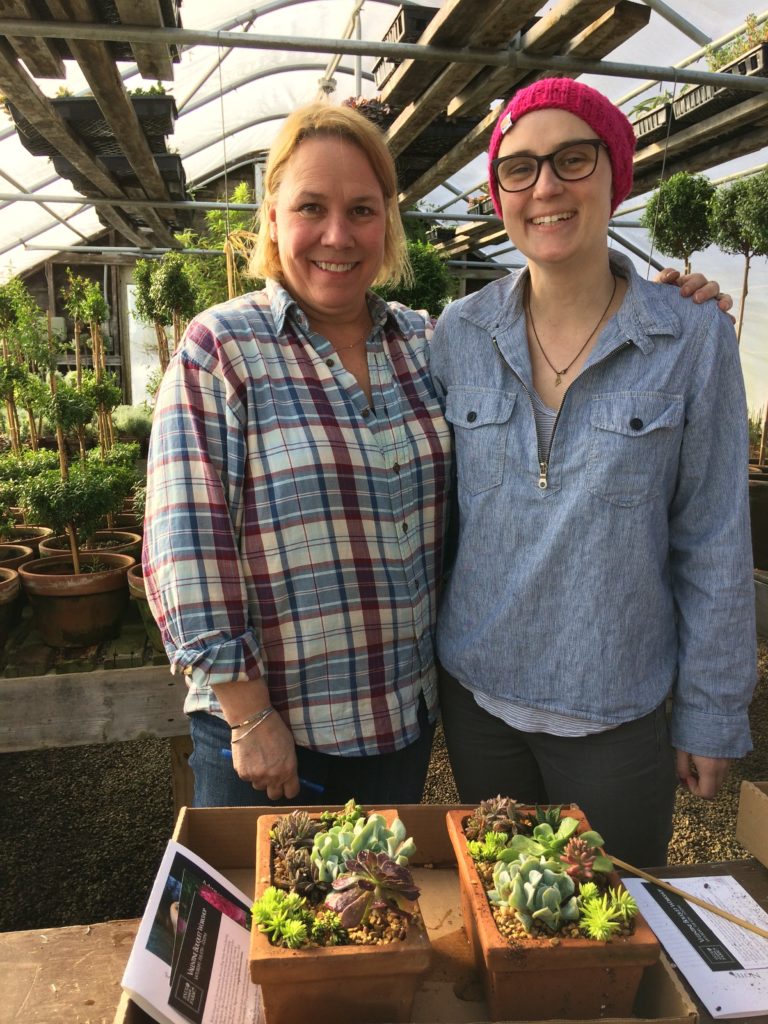By all accounts, Annie McNamara was living a typical young adult’s life in 2015. The 26-year-old lived in South Boston with a good friend from college, worked in Duxbury in the retail department of Island Creek Oysters, and liked spending time with her friends and boyfriend, Dan.

She wasn’t a huge fan of the gym – which is why, when she started feeling tired, she assumed she was just out of shape, or had been working too much during the busy holiday season. But then, other odd things started happening: She had a severe allergic reaction to bug bites during a trip to Puerto Rico, and a few weeks later felt sick after having just a few drinks with friends.
Eventually, Annie was admitted to the emergency room, and after a series of tests, including a bone marrow biopsy, she was told she had leukemia.
“I was super shocked – I didn’t even cry or anything,” Annie says.
Annie got an appointment at Dana-Farber for 6:45 a.m. the next day to meet with the doctors who would officially diagnose her with myelodysplastic syndrome, otherwise known as preleukemia, or smoldering leukemia. That early appointment alleviated some stress from the initial diagnosis, and made Annie confident that she was in the right hands.
“They made an unlucky, unfortunate situation so much less stressful,” she recalls.
Read More:
In myelodysplastic syndrome, the bone marrow does not make enough healthy blood cells, and there are abnormal (blast) cells in the blood and/or bone marrow. Annie’s team at Dana-Farber’s Hematologic Oncology Center decided the best course of treatment would be outpatient chemotherapy called Vidaza, which is administered through a shot.
“That part was relatively straightforward for me,” says Annie, who remembers how her chemotherapy nurses would often have her shots ready for her before she even arrived at the Yawkey Center for Cancer Care. “It wasn’t easy, but I felt really lucky.”
“Lucky” is a word that Annie often uses. And it’s easy to see why: At every turn, she had her support system – her friends, boyfriend, parents, and siblings Megan, Molly, and Patrick. That support system would come through for her in ways she couldn’t have expected. Dan moved with Annie into her parents’ home during treatment, and was inspired to go back to school to become a physician’s assistant. And Molly and Annie turned out to be perfect bone marrow matches, allowing Annie to have the bone marrow transplant she needed after chemotherapy.

Now, more than year after her diagnosis, Annie is in remission and working on her “new normal.” She’s working at home for Island Creek Oysters, a company full of people she now considers family, and she moved back to Boston with Dan. It’s still tough for her not to be able to ski, or hang out at the bar with friends – but now that she’s now cleared to fly, she’s planning a two-week California road trip with her boyfriend. And she’ll soon be honored at Dinner and Late Night with Friends, a Friends of Dana-Farber fundraiser with celebrity chefs, including those in her Island Creek Oysters “family.”
It’s been a long year for Annie and her family. But through it all, the McNamaras have stayed positive – and look forward to an exciting future.
“I have a lot to look forward to, which is awesome,” Annie says. “My mom and I always talk about how, in an unlucky situation, we have been so, so lucky.”
Learn more about leukemia treatment at Dana-Farber, and find resources for young adult patients.
